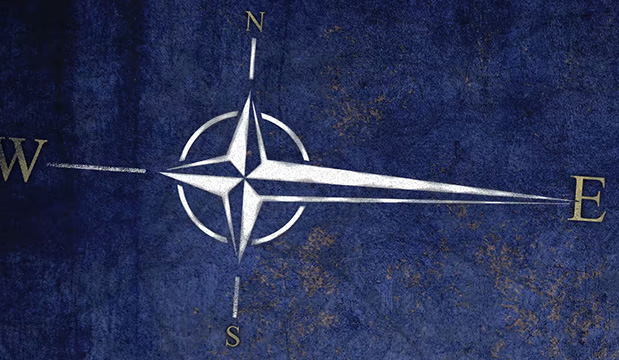 NATO goes East?
NATO goes East?
Pic.: Asia.Nikkei
A recent essay in Foreign Affairs by Max Bergmann, currently of the Center for Strategic and International Studies but formerly of the Center for American Progress, argues for a “more European NATO.” In a time of limited resources, and thus ruthless prioritization, American policymakers must focus on managing our relationship with China and responding to China’s relationship with the rest of the world. If Europe can fulfill the core purposes of NATO without America as principal, then embracing that reality gives U.S. policymakers one less distraction. The benefits are not one-sided in the long term. Bergmann writes that the main problem facing Europe collectively “lies with NATO’s overdependence on the United States,” notes ‘The American Conservative.’
In a world where even President Biden’s Democrat administration is preoccupied with the situation in the West Pacific, this is an obvious vulnerability for martially atrophied European member states. The traditional major threat to U.S. grand strategy is the emergence of a hegemonic power that dominates the Eurasian landmass and thus, surpassing the United States in material and cultural resources, can afford to strike North America across the oceans. The reality now of the global political and economic situation is such that this threat slouches not toward Europe, as it did in the 20th century’s conflicts with Germany and Russia, but instead moves its slow thighs in Asia. American focus is turning, if still in starts and stops.
Thus NATO should be, or will be by events, demoted from a critical global institution to a vital regional one. As Bergmann writes, “After decades of drift, the alliance has found new purpose in deterring Russian aggression, its original raison d’etre,” and the European members of the alliance are capable of such deterrence largely without the United States. Bergmann acknowledges that “when Americans travel to Europe, they see sophisticated infrastructure and citizens who enjoy high standards of living and robust social safety nets.”
Being one of those rare professional liberals with enough imagination to model a normal person’s thoughts, he adds, “They cannot understand why their tax dollars and soldiers are needed to defend a well-off continent whose total population far outstrips that of the United States.”
For decades, NATO has been looking for things to do, and finding some. So when officials outraged by the dormant NATO proposal claim there is nothing to scale down, nothing for America to decline to participate in, that the alliance is just what it has always been, there should be some outrage in return.
In fact, the alliance has evolved, so it can evolve further. Defenders of a smaller role for the United States will have to be prepared, however, just like defenders of the status quo, to set aside compunctions about agreeing with members of “the other team.” As NATO has become so much more than for keeping Russia out, it has not ceased from also being, in Lord Ismay’s famous words, for keeping “the Americans in, and the Germans down.” Conservative interventionists will resist a European-led or dormant NATO with invocations of future war on the continent; reliance on American firepower, they say, is the only thing keeping member states off each other’s throats. In making this argument, they will probably have the support of both small states concerned at the prospect of further dependence on France and Germany and a European left happy to keep the defense burden squarely on American shoulders.
Meanwhile, a coalition for making American troops the backstop of last resort, rather than the backbone of forward defense, will be no less offensive to American prejudices. France may be our oldest ally, but after two World Wars, bickering with Charles De Gaulle, and observation of the country’s creative riot and vacation schedule, her reputation with American conservatives is the stuff of jokes. That reflects the shortness of U.S. memories far more than France’s civilizational status, and will need to be overcome. France has always wanted to play a larger role in NATO, repeatedly snubbed by the Anglo-American special relationship. A French-German-British triumvirate backing up the alliance’s Eastern border states would work as well at preserving peace for the foreseeable future as the current imbalanced consulship.
No one denies that, after 1989, the U.S. experienced a period of hyperpower; the question is whether three decades of bipartisan liberal hubris at the end of history undermined that hegemony beyond repair.
read more in our Telegram-channel https://t.me/The_International_Affairs

 11:37 09.04.2024 •
11:37 09.04.2024 •






















